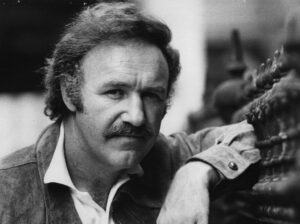“Counting Stars” with Aristotle: Why Do I Feel So Right Doing the Wrong Thing?

I will never forget the first time I heard OneRepublic’s hit song “Counting Stars.” I was 15 years old. My taste in music was limited, to say the least. I rarely listened to anything “mainstream,” and I was more than a little inclined to judge my peers who filled their ears with godless pop music.
When “Counting Stars” came on at a birthday party, I couldn’t help liking the catchy tune. It was a good song, and everyone seemed to enjoy it. People were singing along, and I was listening in hopes of joining in.
Then we got to the pre-chorus.
I feel so right doing the wrong thing
I feel so wrong doing the right thing
Everything that kills me makes me feel alive.
I was shocked. What an awful message! To my mind, this seemed like a prime example of the kind of unrighteous folly that kept me far away from pop music. Appalled that my friends would sing along to such a song, I wrote off OneRepublic as just another peddler of anti-Christian nonsense to brainwash the masses.
Many years later, it was Aristotle who changed my mind. The famed Greek philosopher helped me realize that OneRepublic was riffing on a remarkably Christian idea—and as it turns out, the writer of the song is a Christian himself. Today, I use “Counting Stars” to teach students about Aristotelian ethics and about the Christian doctrine of sanctification. What changed my mind, and how does a pop song from 2013 echo and illustrate ancient wisdom and biblical theology?
Aristotle and the Calibration of the Conscience
We are naturally capable of learning to be virtuous, and we grow in virtue by habit—persistent repetition of virtuous action.
It all starts with Aristotle’s understanding of virtue. In his Nicomachean Ethics, the Greek philosopher argues that we are not born with a natural inclination to do good or evil. Instead, we cultivate “moral virtue” in the same way that we develop arts like painting, poetry, or pottery. Nobody is born a musician or a mechanic—we develop those skills by training and practice. Aristotle believed that virtue functioned in the same way. “None of the moral virtues arises in us by nature… rather we are adapted by nature to receive them, and are made perfect by habit.” In other words, we are naturally capable of learning to be virtuous, and we grow in virtue by habit—persistent repetition of virtuous action.
This virtue-practice is what Aristotle calls “habituation,” which is the process by which virtuous actions turn into virtuous character. “We become just by doing just acts, temperate by doing temperate acts, brave by doing brave acts.”
If humans are truly “blank slates” in terms of character and capacity for virtue, then the habits we form from an early age are deeply important. As we become habituated to virtue or to vice, we develop a sense of what is natural, which consequently shapes our senses of pleasure and pain. Again, Aristotle makes this explicit: “We must take as a sign of states of character the pleasure or pain that ensues on acts… For moral excellence is concerned with pleasures and pains; it is on account of the pleasure that we do bad things, and on account of the pain that we abstain from noble ones.”
In other words, we tend to do bad things because they make us feel good, and we struggle to do good things when they make us feel bad. Sound familiar? Here in the midst of Aristotle’s Ethics, we find the lyrics of “Counting Stars” almost verbatim. Many people truly do find that “everything that kills [them] makes [them] feel alive.” Aristotle would say that this is the result of harmful habituation. In order to avoid this, Aristotle insists that we must educate young people in virtue from the very start. “Hence we ought to have been brought up in a particular way from our very youth… so as both to delight in and to be pained by the things that we ought.”
Once the conscience is calibrated, it is difficult—but not impossible—to alter the perception of what behavior feels good and natural.
I like to call this process “the calibration of the conscience.” As we are taught the difference between right and wrong and given opportunities to exercise virtue or vice, we calibrate our consciences. If this process goes awry, we may discover that we “feel so right doing the wrong thing” and “feel so wrong doing the right thing,” as OneRepublic astutely observed. According to Aristotle, this feeling is evidence of poor moral education. Once the conscience is calibrated, it is difficult—but not impossible—to alter the perception of what behavior feels good and natural.
While reading Aristotle for the first time, I recognized that “Counting Stars” was actually describing a miscalibrated conscience. Yet there is even more to the story, as the Aristotelian approach fails to account for the fullness of the biblical picture of sin.
Original Sin and the Instinct-Ideal Gap
For all he got right about the calibration of the conscience, Aristotle’s blank-slate anthropology conflicts with the biblical doctrine of original sin and the fallenness of humanity. According to Scripture, we are not born in a state of moral neutrality, awaiting habituation into virtue or vice. Instead, our nature is tarnished by sin from the very beginning. As David laments in Psalm 51, “Behold, I was brought forth in iniquity, and in sin did my mother conceive me.” We are indeed misled by our desires and our sense of pleasure and pain, but this is a feature of our nature from the day we are born. Jeremiah notes that “the heart is deceitful above all things, and desperately sick” (Jer. 17:9). It does not take time and poor education to corrupt the human conscience. On the contrary, a lifetime of hard-fought virtue cannot overcome our longing for “everything that kills,” no matter how much we work to habituate ourselves.
We are trapped: we seem to be vicious by nature, yet we cannot cease believing in virtue. Our instincts are base, but our ideals are lofty.
Yet despite the crookedness of the human conscience, we also cannot convince ourselves that this wickedness is “natural.” We cannot escape from the sense that there really is such a thing as “right” and “wrong,” and we cannot outrun the sense of guilt that haunts our steps. Even the most vicious people must find ways to justify themselves in order to live with themselves. We are trapped: we seem to be vicious by nature, yet we cannot cease believing in virtue. Our instincts are base, but our ideals are lofty. This is what I call the “Instinct-Ideal Gap”—that haunting feature of human nature which leaves us incapable of saving ourselves but deeply and desperately aware that we need to be saved.
The famed French absurdist Camus, though far from a Christian himself, made precisely this observation in his novel The Fall. Through the mouth of his protagonist—a man who spends his entire life doing good deeds only to realize one day just how corrupt his own motives could be—Camus bemoans this inescapable trap. “Not enough cynicism and not enough virtue. We lack the energy of evil as well as the energy of good.” This position between two poles seems to Camus like a kind of prison, akin to the Limbo of Dante’s neutral angels and virtuous pagans.
This is a truer picture of the human condition, and once again, “Counting Stars” echoes the sentiment. I do “feel so right doing the wrong thing,” but I can also tell that I shouldn’t. I long for a recalibrated conscience, but contrary to Aristotle’s advice, I cannot seem to make it happen. Nobody can. All the virtuous education in the world cannot produce a man or woman with perfectly-aligned instincts and ideals. No amount of virtuous action can produce a thoroughly virtuous character.
Romans and the “Wretched Man”
“Counting Stars” is a lament rather than a celebration of human depravity.
The Apostle Paul shares the lament of the prophets and the pop stars. In his letter to the Romans, Paul also speaks of the role of conscience, noting how it leaves us feeling trapped between a knowledge of the good and a desire for evil. We have “the work of the law written on [our] hearts” and yet our “conflicting thoughts accuse and even excuse” us (Rom. 2:15). Habituation, it seems, is no solution—we are trapped. In Romans 7, Paul issues a stirring lament over this imprisonment: “I do what I hate and I hate what I do… I find it to be a law that when I want to do right, evil lies close at hand… Wretched man that I am! Who will deliver me from this body of death?” (Rom. 7:15-25)
Paul’s voice joins that of Aristotle, Camus, and OneRepublic: we are trapped between virtue and vice, and we cannot resolve this tension ourselves. “Everything that kills me makes me feel alive.” In light of all these other voices, it seems clear that “Counting Stars” is a lament rather than a celebration of human depravity.
Fortunately, the Bible does more than just diagnose our depravity—it offers a solution. The whole of Romans is dedicated to the good news of a “righteousness of God that is by faith.” Paul’s plea above—“Who will save me?”—is answered definitively in the very next verse: “Thanks be to God through Jesus Christ our Lord!” (Rom. 7:25)
This is the very heart of the gospel. Though “all have sinned and fall short of the glory of God,” we can rejoice because we may be “justified by His grace as a gift, through the redemption that is in Christ Jesus” (Rom. 3:23-24). Finding ourselves fully incapable of establishing our own righteousness, we can instead be clothed in the righteousness of Christ. Immediately after his lament in Romans 7, Paul joyously declares that “There is therefore now no condemnation for those who are in Christ Jesus. For the law of the Spirit of life has set you free in Christ Jesus from the law of sin and death.” (Rom. 8:1-2)
Sanctification and the Hope of Renewal
The Bible teaches that justification—by which God declares us innocent in his sight—is followed by lifelong sanctification. This is the road that leads us out of the Instinct-Ideal Gap and into wholeness and righteousness. Sanctification, which is powered by the Holy Spirit, transforms the corrupt and divided heart and recalibrates the conscience.
Day by day, moment by moment, the Spirit “habituates” us to the way of the kingdom of God.
Paul speaks to precisely this hope when he urges Christians to “be transformed by the renewal of your mind” (Rom. 12:2). By the power of the Holy Spirit, the perverse polarity of our crooked consciences can be reversed, and as we undergo sanctification, the pleasures and pains of our hearts can be recalibrated. Only in this way can we truly experience what Aristotle described: a life in which virtue feels truly natural and vice feels truly wrong. That is what sanctification feels like. Day by day, moment by moment, the Spirit “habituates” us to the way of the kingdom of God. We may still spend a little time in this fallen frame, but we are looking forward to the recreation of all things, and we have the privilege of bringing a glimpse of that glorious day to life in our own communities.
All this brings us back to “Counting Stars.” Understood rightly, this song joins the chorus of voices throughout history which have mourned the perplexing human condition. If I know that it kills me, then why does it make me “feel alive”? Why does the wrong thing feel right? This is life in the Instinct-Ideal Gap, and it feels unfair. Aristotle described the problem well, but he could not solve it. Camus groaned in the trap, but he could not escape from it. There is only one way out: “He saved us, not because of works done by us in righteousness, but according to his own mercy, by the washing of regeneration and renewal of the Holy Spirit” (Titus 3:5).
Now I salute you, OneRepublic. Thank you for drawing our eyes to this painful and perplexing problem. You are right to point out just how backwards it feels. Thank God that He does not leave us in this pit we have dug for ourselves.
That is the hopeful message of sanctification—that not by willful re-habituation but by the power of God, our hearts can be recalibrated until we delight in what is truly good—and learn to “feel so right… doing the right thing.”





